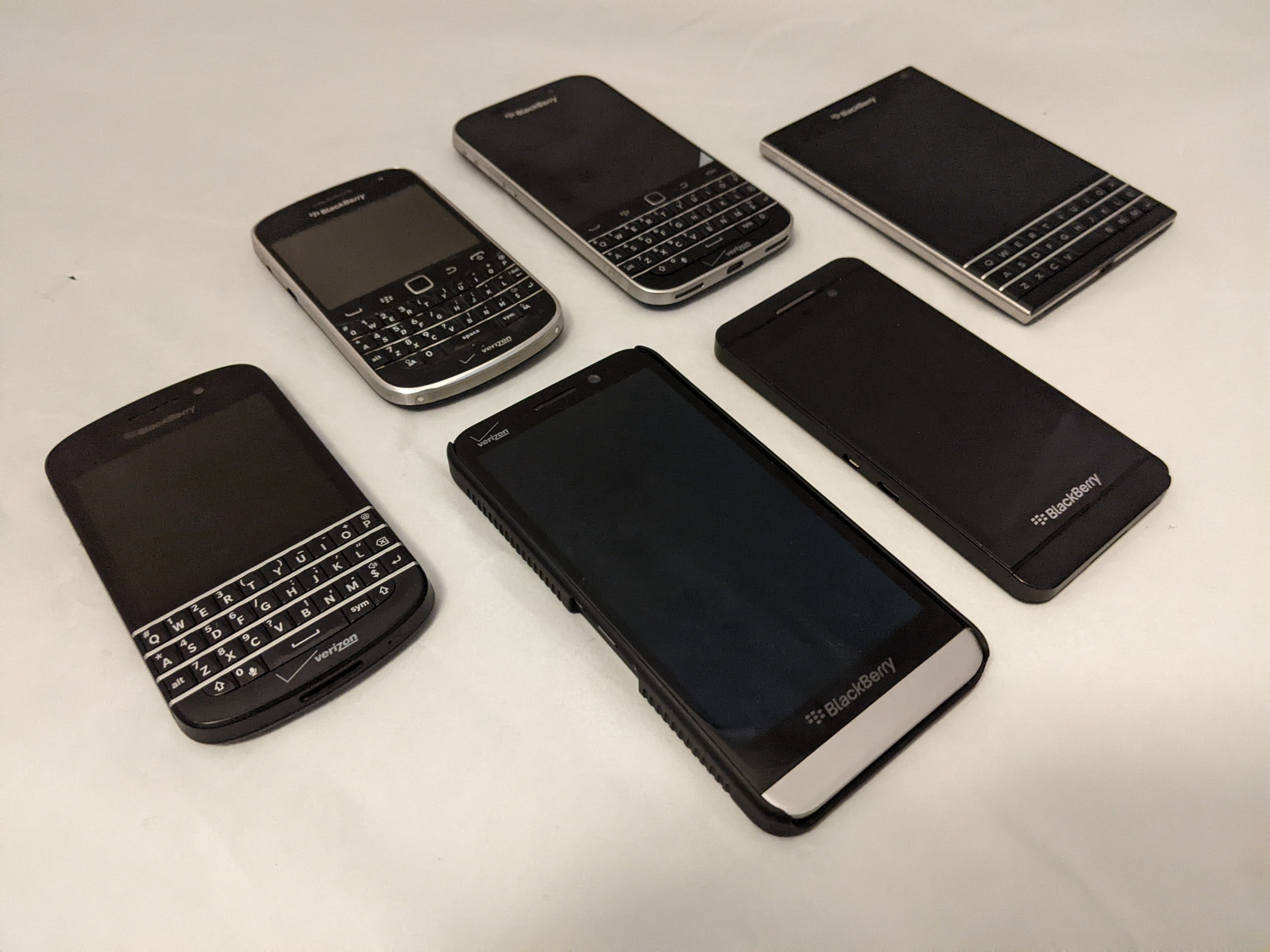Yesterday, January 4th, 2022, marked the official end of support for BlackBerry Limited’s once ubiquitous handset ecosystem for businesses and individuals, including BlackBerry 7.1 OS, BlackBerry 10, BlackBerry Enterprise Service, BlackBerry World, and BlackBerry hosted email services.
In the coming days, the company will power down and decommission the backend services that have long supported its recognizable handsets, like the BlackBerry Pearl, Curve, Bold, PlayBook, Q10, Z10, Classic, and Passport, leaving those devices with degraded and limited functionality.
It’s the end of an era, to be sure, and one that managed to attracted a huge amount of media coverage given how few people use BlackBerrys these days. Nearly every well known tech press outlet had a story about the discontinuation, and so did CNN, the BBC, NPR, The New York Times, and The Washington Post.
Nearly all of the stories I’ve seen about the discontinuation have been high on nostalgia while falling short on reporting the actual details of the shutdown.
Consider these headlines:
Every legacy BlackBerry phone will stop working today
Classic BlackBerry phones will stop working January 4th
BlackBerry Ends Service; Devices Will Stop Working January 4th
Classic BlackBerry devices will stop working on Jan. 4
BlackBerry’s BB10 smartphones are dead
Blackberry to become non-existent after today
The End of BlackBerry Phones is Finally, Truly Here
RIP, Blackberry — Blackberry phones will stop working on January 4
Today is January 5th, 2022, and as I type this, all of my BlackBerry devices are still working, despite what the media reported yesterday and earlier this week. Other BlackBerry enthusiasts are reporting the same.
That’s because while yesterday was the official end of support date for the BlackBerry mobile ecosystem, it wasn’t the actual end of service availability.
There’s a lot of backend infrastructure in multiple datacenters for BlackBerry to shut off, and as many BlackBerry enthusiasts expected, the company appears to be proceeding with a phased power-down rather than a big bang demolition.
As of press time, BlackBerry World app downloads were no longer possible, BlackBerry Protect and BlackBerry ID were inaccessible, and BlackBerry 10 devices appeared to have been cut off from BlackBerry Messenger (BBM).
But calling and texting and emailing remains possible.
I don’t use a BlackBerry as my primary mobile device anymore — I’ve migrated to the iOS and Android duopoly — but as a longtime BlackBerry user, I’m tracking the shutdown. I converted my BlackBerry handsets to what I call “museum status” earlier this week by restoring backups from various time periods to them.

Even after the power-down is fully accomplished and the rest of the legacy infrastructure goes offline, BlackBerry handsets may still be operable to some degree. Their functionality will simply be further degraded.
Anyone who’s still using a BlackBerry at this point is quite used to losing functionality on their devices. It’s been happening for years. Many websites now throw certificate errors in the BlackBerry browser, Facebook, Twitter, and LinkedIn integrations no longer work, and BlackBerry World, the company’s app store, discontinued app purchases a few years ago, leaving only free apps for download.
BlackBerry Limited has advised that its handsets should not be used for calling or texting after January 4th, which is probably what prompted many media outlets to characterize January 4th as the day that classic BlackBerry devices will stop working. But that was not an accurate characterization. January 4th, 2022 wasn’t the day that BlackBerry devices stopped working.
As mentioned, it is even possible, despite BlackBerry’s statements, that BlackBerry handsets will remain functional as phones for awhile longer… at least until carriers turn off their third generation (3G) wireless networks. That’s not guaranteed, of course, but then, nothing in life is truly guaranteed, is it?
Rather than gathering facts and then reporting the more complex details of this event, a whole bunch of stories appear to have been written on the basis of a press release and a company end of life document. A simplistic narrative has once again prevailed over the more complicated reality.
This is something I see all of the time, and it concerns me. Rigorous journalism is sorely needed in these times to defend democracy, stop trust in scientific research from further eroding, and to separate fact from fiction. Long-form investigative reporting — which many outlets are thankfully still funding and producing — cannot and should not be the extent of rigorous journalism.
I’ll have more to say about this subject later this week.

